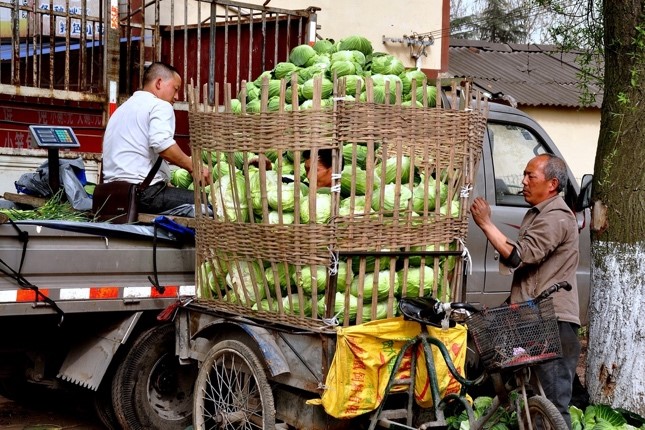Key Considerations in Adopting a Gluten-Free Standard
 By Frank Massong
By Frank Massong
The term “gluten-free” is an urgent food safety concern to the 1% of the population suffering from celiac disease and the 6% with gluten sensitivity, but it is also a concern for regulators, as evidenced by the number of gluten-related Class 1 and 2 recalls and regulatory initiatives we see.
If your food business seeks to serve this market segment, please remember that making a gluten-free claim falls into a highly regulated and scrutinized product category for consumers with special dietary needs. Failure to consider the sensitivity of the gluten-free market in brand communications and advertising can alienate an important segment of the market, and erode brand credibility and value. Consumers of gluten-free products are very savvy, use social media effectively and can be very critical of manufacturers who fail to deliver on their expectations. They also genuinely seek out recognizable point-of-purchase trademarks on packaging that effectively communicate that due diligence has been applied to the product they are purchasing.
For celiacs and gluten-sensitive individuals, a gluten-free diet is the only treatment.
What is Gluten?
Gluten is defined as the protein fractions from grains like wheat, rye, barley, triticale and hybrids thereof. For celiacs and gluten-sensitive individuals, a gluten-free diet is the only treatment. These people get sick when there is a failure. Therefore, it is understandable that 70% of these consumers seek out products that are connected to third party certification (e.g. a gluten-free certification program) whenever possible. Self-declarations made by manufacturers are less credible.
Over 100 million North Americans buy gluten-free products (approximately 51% of consumers). This amounts to more than $10 billion in sales, and this is growing at more than 10% annually. By participating in this market and seeking out certification, companies can benefit from the gluten-free market and its exponential growth by communicating their commitment to producing safe, reliable and trusted gluten-free products for consumers.
Becoming a Gluten-Free Facility
There are some challenges for manufacturers who want to move forward with gluten-free production. Management and employees need to become gluten-aware and fully committed to gluten-free controls as a food safety issue similar to undeclared allergens. Defining the procedures, documentation, internal limits and controls to achieve an outcome that accommodates all markets is important. After that, one needs to decide to become a dedicated gluten-free facility or continue to manage production in a combined gluten-free and non-gluten-free facility with the inherent risks of cross contamination.
There are a number of ways to consistently achieve this. Firstly, a company needs to develop a management system that calls out gluten as a chemical hazard. This is much easier if a high-level food safety management system is already in place (e.g. GFSI benchmarked standard). Combining your food safety audit with a Gluten-Free Certification Program (GFCP) audit, the only scheme presently offering this, can result in substantial savings. Testing is an important tool but is of limited value without a management system, due to the inherent deviations of results caused by processing and cross-reactivity of ingredients. Most companies link gluten to procedures that they use to manage allergens. The key is to get good suppliers who can consistently supply gluten-free ingredients with proof, which will complement your efforts to reduce or eliminate cross-contamination with gluten (i.e. start clean…stay clean).
Regulations Vary
Regulations between countries (e.g. Canada, USA and Europe) vary and you may wish to access professional assistance to navigate the regulatory and consumer perception maze or come under a recognized certification program which facilitates this (e.g. GFCP). Leveraging certification can be effectively used to gain rapid access to the growing gluten-free market by facilitating and enabling key relationships with manufacturers, brands, retailers and consumers.
About the Author
Frank Massong is the Vice President Government & Regulatory for the Allergen Control Group, owners of the Gluten-Free Certification Program, the leading science-based certification program for brand owners and manufacturers wishing to make a safe and reliable gluten-free product claim. Frank Massong has more than forty years of experience dealing with federal, provincial and international governments as well as industry associated with the production, manufacturing, marketing and distribution of food and agri-food products.


-
 FeaturedRisk management
The Cost of a Breach: What a Cyberattack Could Mean for Food Safety Recalls
FeaturedRisk management
The Cost of a Breach: What a Cyberattack Could Mean for Food Safety Recalls
-
 FeaturedRisk management
Securing the Food Chain: How ISO/IEC 27001 Strengthens Cybersecurity
FeaturedRisk management
Securing the Food Chain: How ISO/IEC 27001 Strengthens Cybersecurity
-
 FeaturedRisk management
Revolutionizing Food Safety Training: Breaking Out of the “Check-the-Box” Mentality
FeaturedRisk management
Revolutionizing Food Safety Training: Breaking Out of the “Check-the-Box” Mentality
-
 GFSI Standards
GFSI 2025: Building Trust, Tech-Forward Solutions, and Global Unity in Food Safety
GFSI Standards
GFSI 2025: Building Trust, Tech-Forward Solutions, and Global Unity in Food Safety
-
 FeaturedFood Safety
Integrated Pest Management: Strategies to Protect Your Brand’s Reputation
FeaturedFood Safety
Integrated Pest Management: Strategies to Protect Your Brand’s Reputation
-
 FeaturedFood Safety Culture & Training
No Open Door Policy: Challenges That Impact Pest Control in Food Processing Plants
FeaturedFood Safety Culture & Training
No Open Door Policy: Challenges That Impact Pest Control in Food Processing Plants




